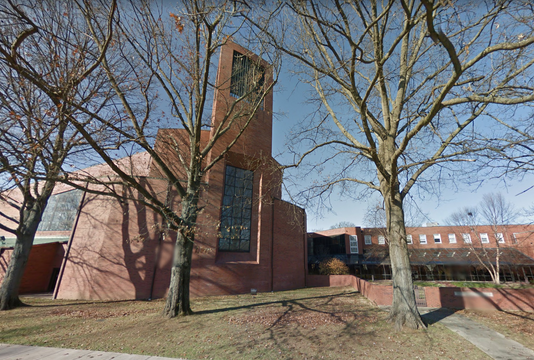[Courier Journal] The Kentucky Baptist Convention on Tuesday cut ties with more than a dozen churches, including at least one in Louisville, for supporting a Baptist religious organization that earlier this year lifted a ban on hiring LGBTQ employees.
The Louisville-based Kentucky Baptist Convention, which has long opposed same-sex marriage, ordaining gay ministers and believes homosexuality is sinful, voted to end its relationship with KBC-affiliated churches that also made financial contributions to the Cooperative Baptist Fellowship at its annual meeting in Pikeville, Kentucky.
The KBC targeted several local churches, including the 1,600-member St. Matthews Baptist, where leaders called the decision ending a 90-year relationship “historic and disheartening.”
“The Kentucky Baptist Convention had an opportunity to demonstrate to a divided nation that we do not have to agree on everything in order to love each other and partner together in carrying out the mission Jesus called us to. Unfortunately, the Convention chose a different course,” St. Matthews Baptist Senior Pastor Greg Barr said in a statement. “Our church believes that unity and difference of opinion can co-exist in the service of our Lord.”
Convention officials said they would lose the cooperation of the statewide organization and ability to join in setting policy.
At Lyndon Baptist Church, another Louisville-area church kicked out of the convention, Pastor Jim Holladay said he’s not worried about any fallout for his congregation but noted that he or his church haven’t even taken a formal position on the hiring of gay, lesbian or transgender workers. He declined to say how he felt about it.
Paul Chitwood, executive director of the convention, said in an interview that the convention could not support groups that “embrace alternative lifestyles” and adopt policies that “redefine what is right and wrong” when it comes to Baptist beliefs that homosexuality is a sin. He said some churches decided to stop giving to the group.
The Cooperative Baptist Fellowship, which formed in the early 1990s after conservative leaders gained national control of the Southern Baptists, earlier this year lifted a total ban on the hiring of LGBTQ staff but retained it for ministry leadership and missionary roles.
Bob Fox, the executive coordinator of the fellowship in Kentucky, decried “a campaign of guilt by association, misinformation and inflammatory rhetoric that has division as the inevitable — and preferred — outcome.”
In the Baptist faith, church autonomy is key, and congregations choose how to worship. Many have multiple affiliations.
The powerful Kentucky Baptist Convention, made up of over 2,400 churches with more than 750,000 members across the state, has previously ousted congregations that bless gay unions and welcome people who are lesbian, gay, bisexual and transgender as pastors and missionaries.
In 2014, they voted overwhelmingly to end their longstanding relationship with Crescent Hill Baptist Church in Louisville.
Last year, Chitwood warned that if the fellowship’s leaders softened their rule against hiring “practicing homosexuals,” it would be a perilous step in the wrong direction.
In November, a Kentucky Baptist Convention committee voted in Louisville to “monitor” the fellowship’s moves and indicated that the convention might expel churches aligned with the fellowship if it lifts the ban. The fellowship did so in February.
Chris Hartman, executive director of the Fairness Campaign, an LGBTQ rights group, said the move would drive congregants away.
“This heartless move by the Kentucky Baptist Convention deepens its demeaning and discriminatory stance towards LGBTQ people. What harm does hiring a gay janitor or transgender cafeteria worker do to ministry? None. Which is why the Cooperative Baptist Fellowship has moved to affirm that someone’s LGBTQ identity doesn’t prevent them doing a non-ministerial job,” he said.
Hartman added: “If the KBC continues to deny the basic humanity and dignity of LGBTQ people, they’ll see congregants begin to move away from them, as virtually all people — including Baptists — now have LGBTQ family and friends whom they love and support.”
To continue reading, click here.
[Editor’s note: This article was written by Chris Kennings and first published at the Courier Journal]











